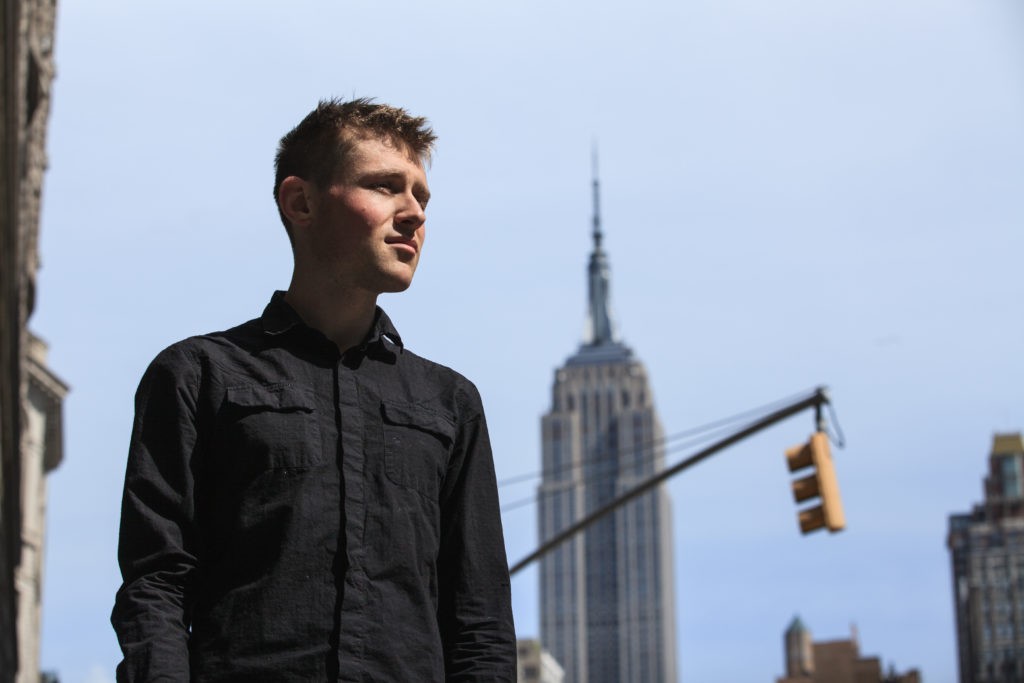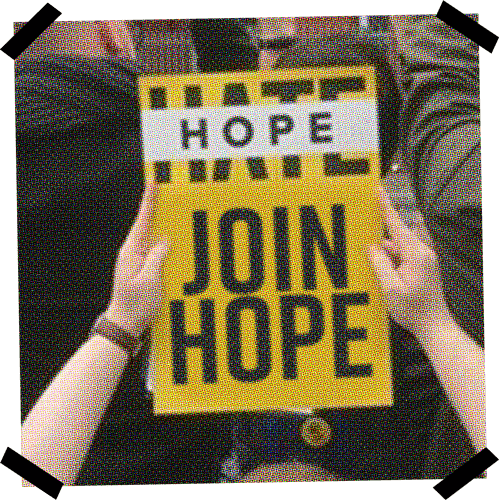In a small house on the outskirts of Seattle, Nazi flags are draped across the walls. There’s a Mein Kampf on the shelf, a bust of Hitler in the corner and tiny porcelain figures with Nazi armbands on the table.
Around 25 men, mostly in their early twenties, sit inside the house sharing a barbecue. All are armed as they discuss weapons and what they would do to Jews, black people and anti-fascists. Every few minutes, they joke about throwing them into the oven.
“These were drunk testosterone-filled men, with guns and a genocidal ideology. I was an anti-fascist, in the middle of a suburb with no taxis and a dead phone. At that point, I was actually scared,” says Patrik Hermansson, 25, an openly gay Swedish man working for HOPE not hate, who spent a year undercover within the world of the Alternative Right.
Juggling dual lives
“It’s very stressful and frustrating not to be able to tell my friends or my parents, to keep everything separate,” says Patrik, whose story is recounted in terrifying detail here.
While he was Erik, attending alt-right conferences and social events, he needed to instinctively answer to the right name and constantly be active on social media.
“It would be weird if I wasn’t active online for even a few days, I scrolled up and down Erik’s Facebook page four times a day to be seen as active.”
Patrik slowly worked his way through the alt-right, attending weekend conferences, informal meetings and talks.
He didn’t usually go chanting in marches and demos, but was present at Charlottesville, when a white supremacist drove his vehicle into a crowd of protesters, killing one and injuring many others.
“I was in the middle of their rally, guarded by rows of police men and barricaded off. The police were armed, shielded and masked. They were ready for violence. The people I was with were also armed. Then, I was like, this doesn’t feel great.”
Patrik explains that most of the violence happened outside the barricaded area but that he’d never been more stressed in his life.
“This was the week before my dissertation deadline for my Masters and I had practically nothing written. I just couldn’t be arrested; I didn’t have the time to be arrested. Next week ok… but not that week!”
But Patrik says most of the time, he did not fear a physical attack, it was just the stress of being found out.
“It was strongest at the start, I was paranoid. But then that decreased which was dangerous because I relaxed and my real name even slipped out once or twice. Towards the end, I was afraid because I was in so deep and I just needed to get in a little deeper. I was afraid to mess up and ruin the project.”
Inside the alt-right
While those he approached (initially in London, UK, via the London Forum) were initially guarded Patrik says he had gained the trust of key activists as the months passed and he remained in their network, attending events and appearing to sympathise with their views.
His ‘Erik’ persona was that of a Swede disillusioned with the left-wing bias and the collapse of Swedish society. (The idea of Sweden being a failed left-wing state and the ‘rape capital of Europe’ is a common trope among alt-right and alt-light conspiracy theorists.)
“So I just complained a lot and said I liked Brexit. I played being sympathetic rather than convinced by far-right narratives. I think they like it when you come as a blank slate, not already filled with ideology.”
Meeting apparently polite and hospitable people was perhaps one of the most surprising elements of his journey, as Patrik attended various social events, such as barbecues, picnics, gallery openings and pubs.
“What’s dangerous is that people start tying their whole lives with the movement, they read the same alternative media, the same books and they get secluded from the rest of society. Even if they don’t agree with all of the ideology – and many of them don’t – even if they start disagreeing with everything, all their friends are inside.”
Back into the real world
After a year inside the alt-right, the mission ended when HOPE not hate announced its major exposé in the New York Times and Patrik could finally tell his parents and friends.
“When I told my parents, they were like, ‘Oh, cool, that sounds interesting’,” he says. “My friend were like, ‘ah, I get it now, that is why you were so boring.’”
Only Patrik’s boyfriend had been aware from the start.
“He knew I had done activism stuff before, he was fine with it. It just took a bit of time. When you tell people they don’t really get it at first.”
He says being around alt-right supporters, prejudice quickly became normalised and things that had shocked before – vile words spewed against minorities, extreme antisemitism, threats of violence – became to seem (in the context of his undercover associations) ‘normal’.
“It does have an impact. Sometimes at the start, you want to scream, you want to leave, but you can’t. You have to sit down and smile and there’s this feeling of claustrophobia.”
When asked why he agreed to go undercover, Patrik says it was part-activism and part-wanting to understand how the far right in its new guise worked, how it recruited and put its ideology into practice.
Now that he has seen it up close and first-hand, he is glad to be out and able to express his views freely.
Reflecting on the intense past year of his life, Patrik says: “What’s obvious after a year inside the alt-right is that we cannot become complacent. These are not just opinions. These are organisations that actively foment hate and promote violence towards large groups of people. They are dangerous and their dangerous ideology must be confronted, wherever it appears.”





